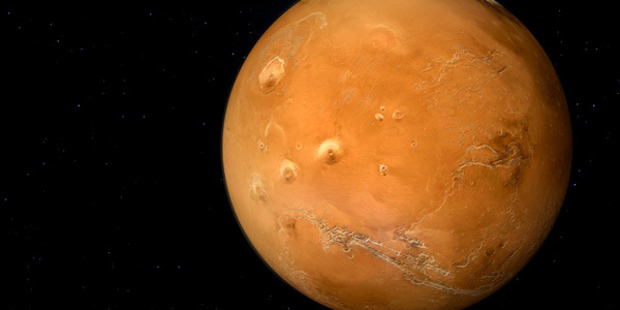Science
Turbulent Week: Major Global Events Shape Our Reality

This week has been marked by significant global developments that highlight the complexities of human existence and our relationship with the world. NASA announced the discovery of what appears to be the clearest indication yet of ancient life on Mars, while a troubling statistic revealed that there are now more obese children than underweight children worldwide for the first time in history. Meanwhile, escalating tensions in the Middle East have seen missiles disrupting peace talks, and military activities involving drones and fighter jets have intensified over the skies of Europe. In the United States, political violence continues to shock the public with another assassination.
The juxtaposition of these events raises profound questions about humanity. As we grapple with fundamental issues such as war, inequality, and the search for meaning, one might wonder how we would explain our existence to hypothetical extraterrestrial visitors. If Martian aliens were to arrive, what perception would they have of our species?
Religion, which often promotes the idea of loving one’s neighbor, seems paradoxically intertwined with conflict. People fight in the name of beliefs that should unite them. In a world where food scarcity persists, some individuals face obesity while others struggle with hunger. The concept of democracy, heralded as a beacon of freedom, is shadowed by the reality of violence against those who dare to voice dissent.
These themes are not new. Throughout history, humanity has engaged in cycles of conflict over territory, resources, and ideological differences. While animals may fight for survival, humans often contend with one another not just for basic needs, but also for the sake of disagreement. This inclination towards conflict can be attributed to our nature as social beings. Social connections can foster collaboration, yet they can just as easily lead to division and strife.
The rise of social media has further complicated these dynamics. While it can serve as a platform for connection and communication, it also amplifies division and hostility. The question remains: how do we reconcile these contradictions? If aliens landed tomorrow and asked to meet key figures such as Donald Trump, Xi Jinping, The Pope, or The King, what would we say about ourselves?
As the world continues to navigate these turbulent times, the search for understanding becomes increasingly important. Perhaps an alternative approach would be to ask the aliens a simple question: “Do you have any room for us up there?” This inquiry reflects a desire for connection and belonging, underscoring the complexities of the human condition in both our achievements and our failures.
In the face of this multifaceted reality, society is left to ponder what it truly means to be human in an ever-changing world. The outcomes of current events will undoubtedly shape our future, but the core questions about our nature and interactions will linger on, inviting reflection and dialogue across the globe.
-

 Top Stories1 month ago
Top Stories1 month agoCommunity Mourns Teens Lost in Mount Maunganui Landslide
-

 Entertainment6 months ago
Entertainment6 months agoTributes Pour In for Lachlan Rofe, Reality Star, Dead at 47
-

 World3 months ago
World3 months agoPrivate Funeral Held for Dean Field and His Three Children
-

 Top Stories3 months ago
Top Stories3 months agoFuneral Planned for Field Siblings After Tragic House Fire
-

 Sports6 months ago
Sports6 months agoNetball New Zealand Stands Down Dame Noeline Taurua for Series
-

 Entertainment1 month ago
Entertainment1 month agoJulian Dennison Ties the Knot with Christian Baledrokadroka in New Zealand
-

 Entertainment5 months ago
Entertainment5 months agoNew ‘Maverick’ Chaser Joins Beat the Chasers Season Finale
-

 Sports6 months ago
Sports6 months agoSilver Ferns Legend Laura Langman Criticizes Team’s Attitude
-

 Sports4 months ago
Sports4 months agoEli Katoa Rushed to Hospital After Sideline Incident During Match
-

 Sports4 months ago
Sports4 months agoAll Blacks Star Damian McKenzie and Partner Announce Baby News
-

 Sports3 months ago
Sports3 months agoNathan Williamson’s Condition Improves Following Race Fall
-

 Politics5 months ago
Politics5 months agoNetball NZ Calls for Respect Amid Dame Taurua’s Standoff



















